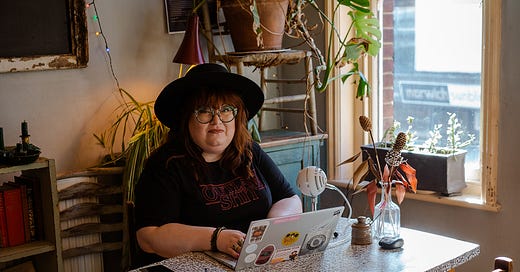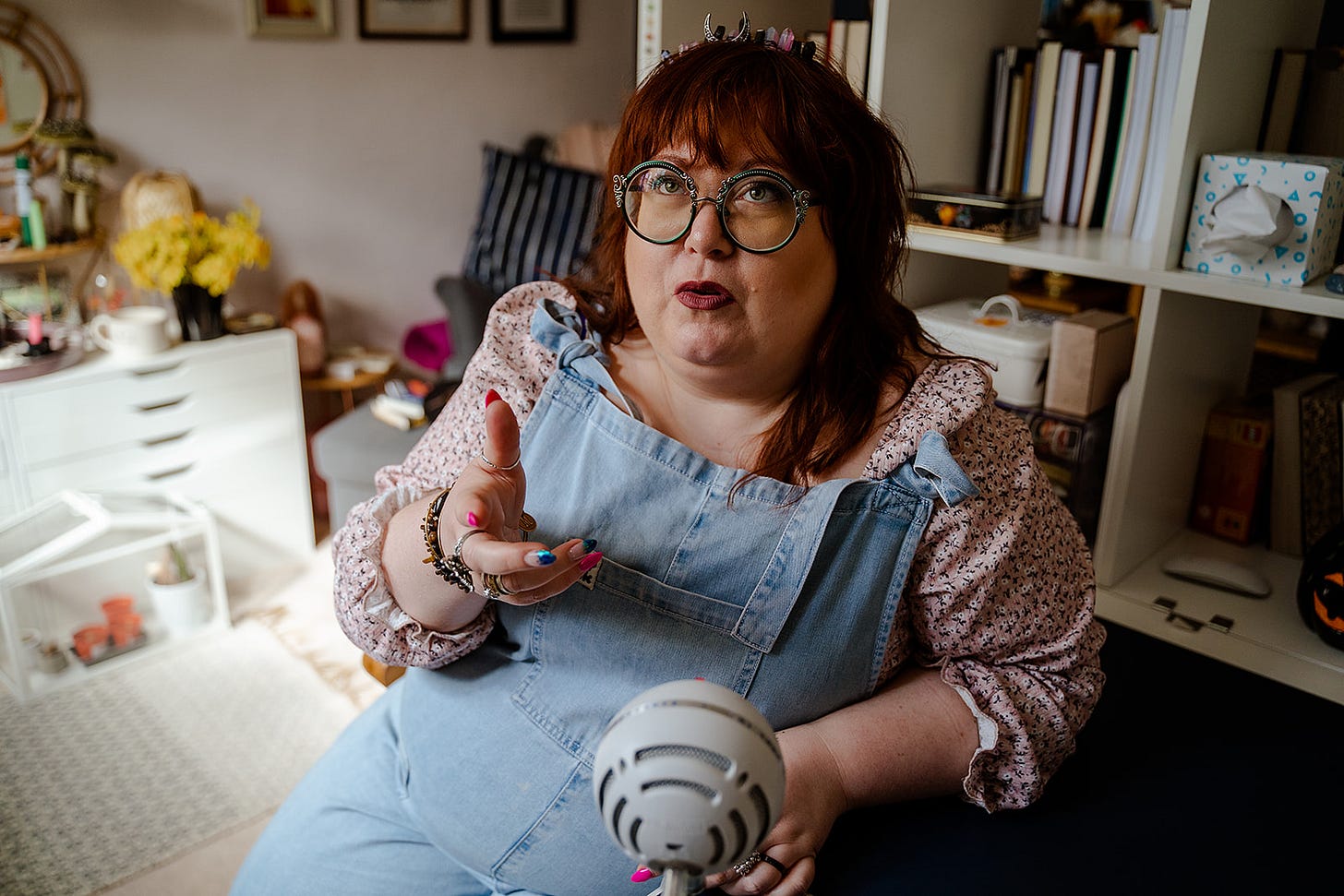Recently, I started to notice a trend in the comments section of my TikTok videos:
“It’s not that diets don’t work, it’s that people stop and start eating more!”
“It’s not ALL diets, just fad diets that don’t work”
“It’s just about balanced healthy eating, that’s not a diet”
“You’ve just done the wrong diets.”
And these weren’t even videos in which I was talking about diets, this is just the general commentary from people on the internet who want to teach me how to diet, because they misunderstand the point: I don’t want to pursue intentional weight loss.
What stood out to me is the number of folks who believe the way in which they eat or move in order to control their body isn’t a diet. They believe moralising certain food groups or food choices isn’t a diet, and following a set of rules for their entire life is both sustainable, and - you guessed it - not a diet.
I get it.
Restriction, control and moralising our food choices is a pervasive part of diet culture. From a young age we are taught which foods are “good for us” and which are “bad for us”, we grow up policing ourselves and others. We become indoctrinated into a culture of food rules, a world where our worth is measured by our weight or clothing size.
At various points in my 20s I told myself: I guess I’ll just have to be on some kind of diet for the rest of my life. This is my life, I can’t eat “normally”, I have no self control, so I’ll just have to control myself forever.
When I started working with an Intuitive Eating coach in 2022, it became clear to me that even though I’d not been counting calories or trying to lose weight for a couple of years, I still had the diet talk running through my mind. I still moralised certain food choices, I still believed my body would be smaller one day, or at the very least I could control my body weight.
This is why I totally understand the comments. The diet mindset runs deep, and it’s presented to us as balance, moderation, portion control, mindfulness or maintenance, which as you’ll hear in episode 29 – are all diet language.
Yes, this week I’m sharing something I learned from my time working with my body image coach, Naomi Katz; the 3 diet red flags 🚩🚩🚩 Now, this was supposed to be a minisode… but apparently I had a lot to say about this topic so it’s full length and I’ll be answering the questions:
What makes a diet a diet?
What are the 3 red flags of diets
What about health?
How does nutrition fit into all of this?
As always, if you have any questions please feel free to drop them below. Please share this episode, or any episode with folks who you think would benefit from these conversations. And if you’d like to support my work financially, you can upgrade to a paid subscription here on substack.
Takeaways:
Diet culture is pervasive and manipulative.
Not all diets are labeled as diets; many disguise themselves as lifestyle changes.
Understanding dieting red flags can help navigate diet culture.
Personal preference in food choices is crucial for intuitive eating.
Healthy eating is subjective and varies across cultures.
Dieting behaviours can lead to disordered eating and negative self-talk.
It's important to recognise the emotional aspects of food.
Self-care and self-respect should not be tied to body size.
Food policing reinforces fatphobic narratives.
It's not your fault; diet culture is everywhere.
Chapters:
00:00 Why The Language We Use About Diets Matters
17:37 The 3 Dieting Red Flags
25:26 But, What About Health?
28:25 Food Policing & The Restriction Rebellion Pendulum
33:10 3 Takeaways From The Episode
Links:
Maintenance Phase Podcast with Aubrey Gordon and Michael Hobbes














Share this post